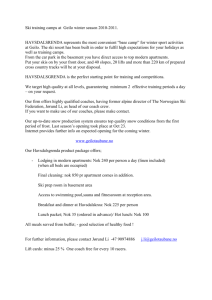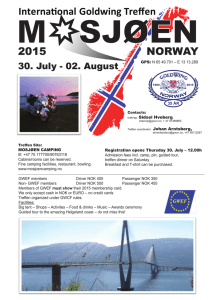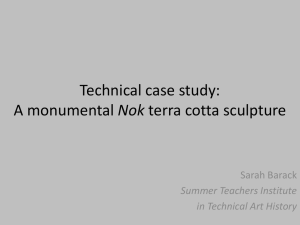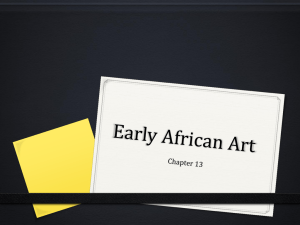STATE MEDIATORS PROPOSAL
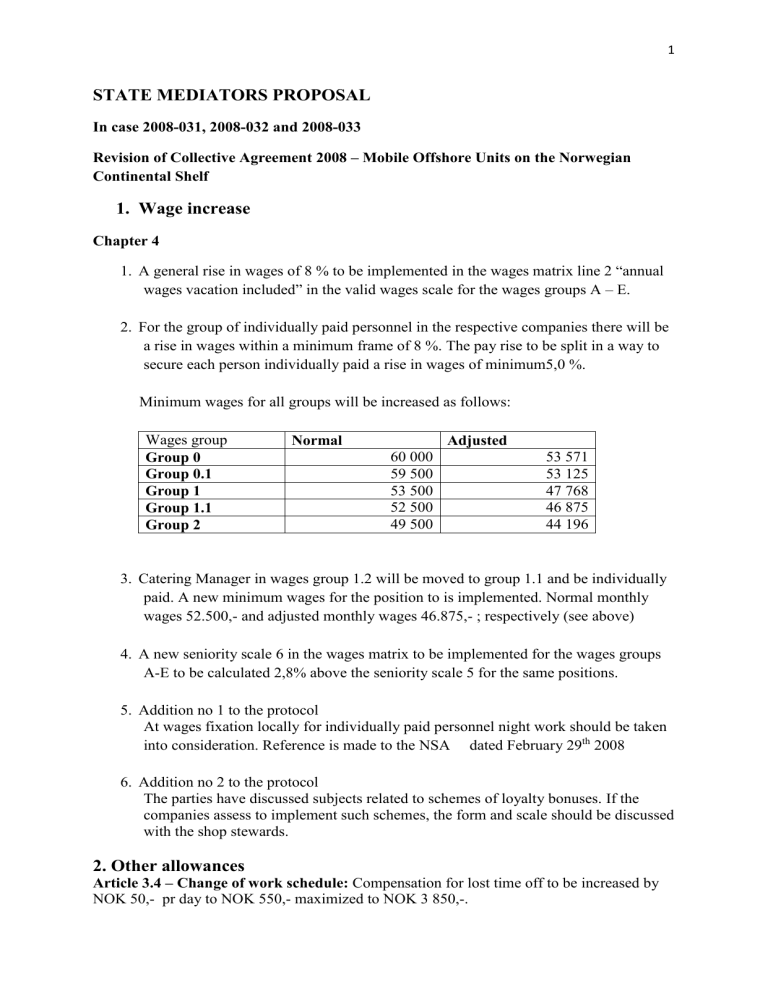
1
STATE MEDIATORS PROPOSAL
In case 2008-031, 2008-032 and 2008-033
Revision of Collective Agreement 2008 – Mobile Offshore Units on the Norwegian
Continental Shelf
1.
Wage increase
Chapter 4
1.
A general rise in wages of 8 % to be implemented in the wages matrix line 2 “annual wages vacation included” in the valid wages scale for the wages groups A – E.
2.
For the group of individually paid personnel in the respective companies there will be a rise in wages within a minimum frame of 8 %. The pay rise to be split in a way to secure each person individually paid a rise in wages of minimum5,0 %.
Minimum wages for all groups will be increased as follows:
Normal Adjusted Wages group
Group 0
Group 0.1
Group 1
Group 1.1
Group 2
60 000
59 500
53 500
52 500
49 500
53 571
53 125
47 768
46 875
44 196
3.
Catering Manager in wages group 1.2 will be moved to group 1.1 and be individually paid. A new minimum wages for the position to is implemented. Normal monthly wages 52.500,- and adjusted monthly wages 46.875,- ; respectively (see above)
4.
A new seniority scale 6 in the wages matrix to be implemented for the wages groups
A-E to be calculated 2,8% above the seniority scale 5 for the same positions.
5.
Addition no 1 to the protocol
At wages fixation locally for individually paid personnel night work should be taken into consideration. Reference is made to the NSA dated February 29 th 2008
6.
Addition no 2 to the protocol
The parties have discussed subjects related to schemes of loyalty bonuses. If the companies assess to implement such schemes, the form and scale should be discussed with the shop stewards.
2. Other allowances
Article 3.4 – Change of work schedule: Compensation for lost time off to be increased by
NOK 50,- pr day to NOK 550,- maximized to NOK 3 850,-.
2
Article 6.5 – Oil based drilling mud: All allowances/compensations to be increase by 10% as follows:
Allowance of NOK 110,- increased to NOK 121,-
Allowance of NOK 90,- increased to NOK 99,-
Allowance of NOK 20,- increased to NOK 22,-
Allowance of NOK 5,- increased to NOK 5,50
Article 7 – Night bonus: The night shift allowance to be increased by NOK 7,- to NOK 55,-
Article 12 – Compensation for public holidays : Compensation increased by NOK 100,- to
NOK 1.530,-
Article 13.2 – Irregularities in connection with the journey: The rate increased from NOK
64,- to NOK 100,- and from NOK 105,- to NOK 150,-
3. Changes in text
Article 1 – Scope – Addition to protocol
Sentence before last one to be changed as follows:
Members of NSA though should try to influence such subcontractors to be part in the
Collective Agreement and upon request from the local shop stewards be able to account for their efforts to influence.
Article 3.5.2 Swing shift
Two new bull points to be implemented under the exceptions/clarifications:
If an agreed swing shift is not carried out there will be no swing shift compensation paid.
Except the changes in working periods according to bull point 1, exceptions is only related to one change in working period during one period on board.
Article 4.1 notes
Changes in text as follows: (waiting time at heliport etc)
For employees in wage groups 0 to 2 the following sections do not apply, 3.1, 3.2, 3.3,
1.paragraph, 3.4, 3.5, 3.6 and 3.7, section 4.1.1 to 4.1.3 and 4.2 and section 5 – 7. However, they shall be paid a compensation equal to ordinary hourly wage and overtime pay according to the rates in item 5.1 for extended time on board (with work) in relation to the duration of their ordinary agreed working hours. and payment for waiting time (leisure time) on the unit following the regulations in item 3.3 and the entitlement of own cabin in item 6.9.
Article 4.1.3 – Seniority for substitutes
Annual working hours to be changed from 1582 to 1460
Article 8 – Meetings and consultations
If the employer summons an employee during his leisure period to a meeting or consultation, this is to be compensated for by ordinary hourly wage plus 65% for the time spent, however with the minimum of 4 hours. This does not apply for Section Supervisors or when the case concerns personal matters regarding the person summoned.
3
If section supervisors are summoned, compensation may be agreed at company level on a caseby-case basis.
Article 9.7 – Temporary employees
Additional to first sentence, section 1: ....and first aid training....
Article 20 Resource pool
The joint declaration dated 5 th February 2008, agreed by the parties, to be implemented in the
Agreement as appendix 7.
Article 24 Apprentices
Apprentices
The parties agree that the apprentice shall be compensated equal to unskilled personnel when working overtime. Unskilled personnel on drill floor will be equal to the position of roughneck and wages for the latter will be the basis for calculations when the apprentice is working overtime on drill floor.
Wages conditions for apprentices
The standard model for vocational training consist of 2 years training in upper secondary school, plus 2 years apprenticeship in a business with 50% time for training and 50% productive work.
The hourly compensation consists of a percentage of the hourly rate exclusive of all allowances for newly educated skilled workers in the company:
1. 2. 3. 4. 5. 6. 7. 8. Half year periods
----School--- 30 40 50 80 Percent
Apprentices who work overtime will be compensated with overtime rates according to the starting wage for OMO or Roughneck. Which basis to be used to be decided by nature of the work to be carried out.
Vocational training and continuing education
In the years to come, the businesses face great challenges, particularly as regards technological development. The introduction of new technology and changes in production methods will also lead to employees being faced with new and greater requirements towards competence.
4
The parties have a common goal that the employees might qualify and achieve the necessary qualifications required to cope with the tasks they may face at any time. Necessary training/continuing education will play a decisive role in this regard. The parties assume that all employees are willing to undergo the required vocational training which the company regards as necessary in order to meet the increased requirements for competence for the position in question.
Vocational training will be carried out in accordance with the (Norwegian) Education Act and the provisions issued at any time in pursuance of this law and the provisions of the Basic
Agreement.
The parties agree on the following:
• the company and the shop stewards will discuss the need to take on apprentices, so that provisions will be made for the necessary intake of apprentices.
• it is recommended that the local parties discuss support for relevant schemes such as financial support in connection with travel and moving expenses, as well as assessing the need for measures that increase mobility and accessible number of apprentices.
• apprentices and practice candidates shall have no financial expenses in connection with, e.g., course fees and teaching materials in the period up to their qualifying examination.
The employer shall cover wages in connection with the qualifying examination and the theoretical part of the apprentices' examination. The employer is not obliged to cover wages more than once within the same discipline.
• the parties will work jointly for the updating of vocational training, so that the training corresponds optimally to the requirements of the industry at all times.
• the parties will work to ensure that the scheme which allows for taking the qualifying examination pursuant to Article 3.5 of the Education Act (The Practice
Candidate Scheme) is retained also in the future.
• the parties agree that the relevant public professional bodies are seeking to establish new training schemes to update the qualifications of skilled workers, which will be required by changed work requirements, working conditions and new technology, etc.
• that the companies shall facilitate for “Article 20-training” for employees within the drilling section, and accordingly, equal training of expatriate personnel who are not able to attend such training.
Continuing education
The companies are encouraged to consider the issue of education and training in a systematic manner, in accordance with the provisions in Chapter 12 of the Basic Agreement.
The parties recommend that the local parties adapt the organisation of their work and their internal corporate agreements considering the requirements of new technology.
Competence
The employees have the right to have their total competence documented individually.
5
Appendix 1 Education and Development Fund
Premium increased from NOK 82,- to NOK 86,- pr. month pr. employee,
3. Committees etc.
Committee 1
Due to the new Contractual Pension Scheme (AFP) and the National Pension Scheme models and uncertainties as how to incorporate these two schemes and the Seamen Pension Scheme, the parties have agreed to prolong the mandate of the contractual established ‘Pension
Committee” (reference is made to the Collective Agreement appendix 4).
Claims towards the above will be allowed to be presented at the adjustment regulation in
2009 with the right to terminate the agreement.
Committee 2
The parties have discussed different aspects of the use of drilling fluids, hydraulic oil and fluids used for completing the wells and have agreed to establish a committee to consider aspects related to these items. The committee shall to consist of representatives from NSA and the unions. The work is to be concluded within 31.12.2009.
Committee 3
The strong increase in employment on the Norwegian Continental Shelf will, in a short term aspect, represent severe challenges to meet the need for qualified personnel. Due to these prospects NSA wishes to discuss an expanded practice with the use of alternative working schedules and other compensating measures which may reduce the challenges connected to the above.
The representatives of the work force are of the opinion that the shortage of personnel must find a solution without altering the work cycles.
The parties have agreed to evaluate the problem to find qualified personnel to the oil industry.
-eom-
